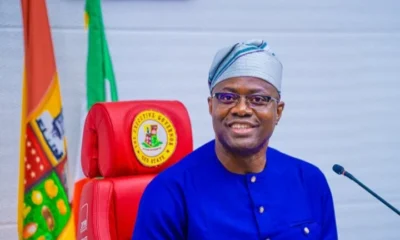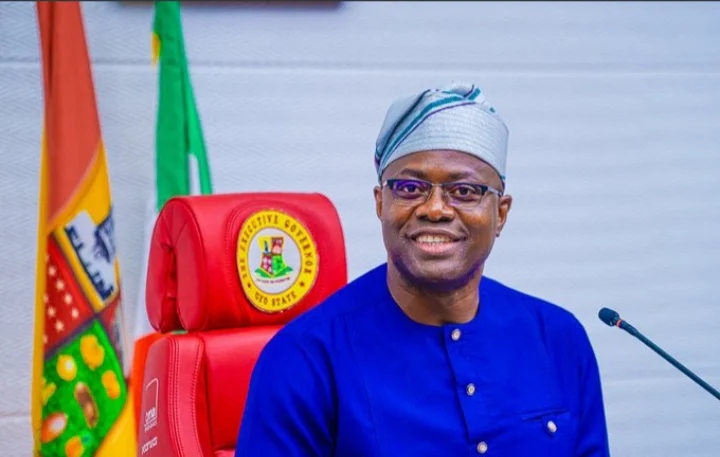The conferment of a chieftaincy title by the Oniru of Iru Land is no ordinary event. It is a profound acknowledgment of exceptional contributions to society, culture, and community development. In this light, the selection of Olorunnimbe as a recipient of this prestigious honor is both timely and well-deserved. His achievements, vision, and influence resonate far beyond his immediate sphere, making this recognition a landmark moment not just for him but also for Iru Land and Lagos State at large.
Olorunnimbe is a name that has become synonymous with excellence in the creative arts, entrepreneurship, and cultural advocacy. As the owner of a state-of-the-art studio, he has provided a platform that has redefined the standards of Afrobeat and contemporary African music production. The studio has welcomed global luminaries and has been described as a “shining spot for Afrobeat” by none other than the Deputy Treasury Secretary of the United States during a visit to Lagos. This accolade underscores the global recognition of Olorunnimbe’s efforts to elevate Nigerian art and culture onto the world stage.
Integral to this vision is the Gidi Creative Centre (GCC), a training and educational arm of his creative enterprise. The GCC is a hub where raw talents are nurtured, refined, and transformed into world-class professionals. By offering training programs, mentorship, and exposure to industry best practices, the GCC has become a breeding ground for the next generation of creative innovators. It represents Olorunnimbe’s commitment to not just showcasing talent but also building a sustainable pipeline for the future of the creative industry.
In an era where Afrobeat has become a global phenomenon, Olorunnimbe’s contributions have been instrumental in shaping its narrative. His studio serves not only as a hub for music but also as a beacon of African creativity, inspiring countless young talents to dream big and aim higher. Such a legacy is deserving of celebration and honor.
Elevating the Cultural and Economic Landscape
Beyond his contributions to the arts, Olorunnimbe’s influence extends into the economic and cultural fabric of Lagos. His vision aligns with the aspirations of a state that seeks to position itself as a cultural and economic powerhouse. By hosting events, producing world-class content, and fostering collaborations, he has created job opportunities and enhanced the visibility of Lagos as a global cultural hub.
This impact has not gone unnoticed. From local accolades to international recognition, Olorunnimbe has demonstrated that the creative industry can be a formidable driver of development. His commitment to executing high-budget films and projects—with ambitions reaching the $200 million mark—is a testament to his belief in the potential of Nigerian talent and resources.
The Oniru of Iru Land’s decision to bestow a chieftaincy title upon Olorunnimbe is a strategic and symbolic move. It brings a modern edge to the traditional institution, showcasing the kingdom’s embrace of individuals who embody the spirit of innovation and progress. By honoring someone of Olorunnimbe’s stature, Iru Land positions itself as a forward-thinking community that celebrates excellence in all its forms.
Chieftaincy titles have historically been a bridge between tradition and modernity. They are not merely ceremonial but serve as a recognition of responsibility and an invitation to contribute more actively to the community’s development. In this role, Olorunnimbe is uniquely qualified. His track record suggests that he will bring not only prestige but also tangible benefits to Iru Land, furthering its cultural and economic aspirations.
A Global Ambassador for Nigerian Excellence
One of Olorunnimbe’s defining qualities is his ability to connect local excellence with global platforms. His work has attracted the attention of international figures, including the Deputy Treasury Secretary of the United States, who publicly lauded his contributions during a visit to Lagos. This global acknowledgment places Olorunnimbe in a unique position to act as an ambassador for Nigerian culture and innovation.
The chieftaincy title offers a formal platform for him to continue this role, linking the rich traditions of Iru Land with the dynamic opportunities of the modern world. It is a reminder that Nigerian culture, when nurtured and celebrated, has the power to captivate audiences far and wide.
The conferment of the chieftaincy title upon Olorunnimbe is not just a personal milestone; it is a moment of pride for Iru Land and Lagos as a whole. It signifies the kingdom’s commitment to recognizing and celebrating individuals who contribute meaningfully to society. The coronation is expected to draw significant attention, shining a spotlight on the kingdom’s rich heritage and its evolving role in contemporary Nigerian society.
This celebration is also a call to action for others to emulate Olorunnimbe’s dedication and vision. It reinforces the idea that hard work, innovation, and a commitment to excellence are values that transcend individual success and contribute to the collective good.
A Bright Future for Iru Land
The ripple effects of this recognition will undoubtedly extend beyond the ceremony. By honoring someone of Olorunnimbe’s caliber, the Oniru of Iru Land is setting a precedent for future engagements with leaders in various fields. This chieftaincy title has the potential to inspire new partnerships, attract investments, and enhance the kingdom’s reputation on both national and international stages.
For Olorunnimbe, this is an opportunity to deepen his impact. His new role as a chief comes with responsibilities that align with his life’s work—uplifting others, championing cultural heritage, and fostering progress. With his proven track record, there is little doubt that he will rise to the occasion, leaving an indelible mark on Iru Land and beyond.
The conferment of a chieftaincy title upon Olorunnimbe by the Oniru of Iru Land is a fitting tribute to a man whose contributions span culture, economy, and community development. It is a celebration of excellence, a recognition of impact, and a testament to the kingdom’s vision for the future. As Lagos continues to assert itself as a global city, the inclusion of individuals like Olorunnimbe in its traditional institutions ensures that its heritage remains vibrant and relevant.
For Iru Land, Lagos, and Nigeria, Olorunnimbe’s chieftaincy is a lighthouse to what is possible when excellence is nurtured and celebrated.
14th of June, Iru land will honour her son!

 BIG STORY3 days ago
BIG STORY3 days ago
 BIG STORY2 days ago
BIG STORY2 days ago
 BIG STORY3 days ago
BIG STORY3 days ago
 BIG STORY5 days ago
BIG STORY5 days ago
 BIG STORY3 days ago
BIG STORY3 days ago
 BIG STORY2 days ago
BIG STORY2 days ago
 BIG STORY2 days ago
BIG STORY2 days ago
 BIG STORY2 days ago
BIG STORY2 days ago
























